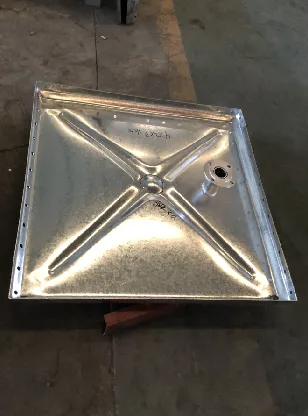loading...
- No. 9, Xingyuan South Street, Dongwaihuan Road, Zaoqiang County, Hengshui, Hebei, China
- admin@zjcomposites.com
- +86 15097380338
- Welcome to visit our website!
frp grill
Exploring the Benefits and Features of FRP Grills
When it comes to construction and industrial applications, choosing the right materials can significantly impact durability, efficiency, and safety. One such material that has gained prominence in recent years is Fiber Reinforced Polymer (FRP). Among the various applications of FRP, FRP grills stand out as a versatile solution for many industries including wastewater treatment, oil and gas, and chemical processing. This article delves into the benefits and features that make FRP grills an ideal choice for diverse environments.
What is FRP?
Fiber Reinforced Polymer is a composite material made of a polymer matrix reinforced with fibers such as glass, carbon, or aramid. The combination of these materials results in a product that is not only lightweight but also highly durable and resistant to various environmental factors. These characteristics make FRP an exceptional option for a wide range of infrastructures.
Key Features of FRP Grills
1. Corrosion Resistance One of the most significant advantages of FRP grills is their outstanding resistance to corrosion. Traditional metal grills often succumb to rust and degradation when exposed to harsh environments, especially in chemical processing or marine applications. In contrast, FRP grills resist corrosion, making them a long-lasting solution that reduces maintenance costs and downtime.
2. Lightweight FRP grills are considerably lighter than metallic alternatives. This lightness allows for easier handling and installation, reducing labor costs and time. Moreover, it enables the use of lightweight support structures, further enhancing the overall efficiency of construction projects.
3. Safety Safety is a paramount concern in industrial environments, and FRP grills offer numerous safety benefits. They have a non-slip surface that minimizes the risk of slipping and falling, making them suitable for walkways and flooring. Additionally, FRP is non-conductive, which is essential in environments where electrical hazards are present.
frp grill

4. Customizable FRP grills can be manufactured to meet specific dimensional and performance requirements. This customization capability allows for tailored solutions that fit unique applications, whether in terms of load-bearing capacity or the integration of specific designs.
5. Easy Installation The lightweight nature of FRP grills simplifies the installation process. They can be easily cut and shaped on-site, allowing for a quick and hassle-free installation, which is especially beneficial in remote or difficult-to-access locations.
6. Durability FRP materials are designed to withstand extreme temperature fluctuations and impacts. They do not degrade over time as traditional materials might, ensuring a long service life. This durability not only contributes to cost-effectiveness but also promotes sustainability by reducing the need for frequent replacements.
Applications of FRP Grills
FRP grills are employed across various sectors due to their numerous benefits. In wastewater treatment plants, they are used as grating for walkways and platforms that require access to machinery and processes. In the oil and gas industry, FRP grills protect personnel by providing slip-resistant surfaces while also holding up against corrosive chemicals and harsh weather conditions. Additionally, FRP grills are used in commercial buildings as roofing and flooring solutions that require both strength and lightweight properties.
Conclusion
FRP grills represent a significant advancement in materials engineering, providing solutions that enhance safety, durability, and cost-effectiveness across a variety of applications. Their ability to resist corrosion, lightweight nature, and customizable options make them an appealing choice for engineers and project managers. As industries continue to seek innovative ways to optimize their operations, FRP grills will undoubtedly play an essential role in the construction and maintenance of safe, reliable, and efficient infrastructures. In an era where sustainability and efficiency are increasingly prioritized, the rise of FRP technology stands as a testament to the future of industrial materials.
-
Transform Your Spaces with FRP Grating SolutionsNewsNov.04,2024
-
The Versatility and Strength of FRP RodsNewsNov.04,2024
-
The Excellence of Fiberglass Water TanksNewsNov.04,2024
-
The Benefits of FRP Grating for Your ProjectsNewsNov.04,2024
-
Elevate Your Efficiency with FRP Pressure VesselsNewsNov.04,2024
-
Welcome to the World of FRP Pressure VesselsNewsOct.12,2024
-
Unveiling the Future of Filtration: Why FRP Filter Vessels are a Game ChangerNewsOct.12,2024
